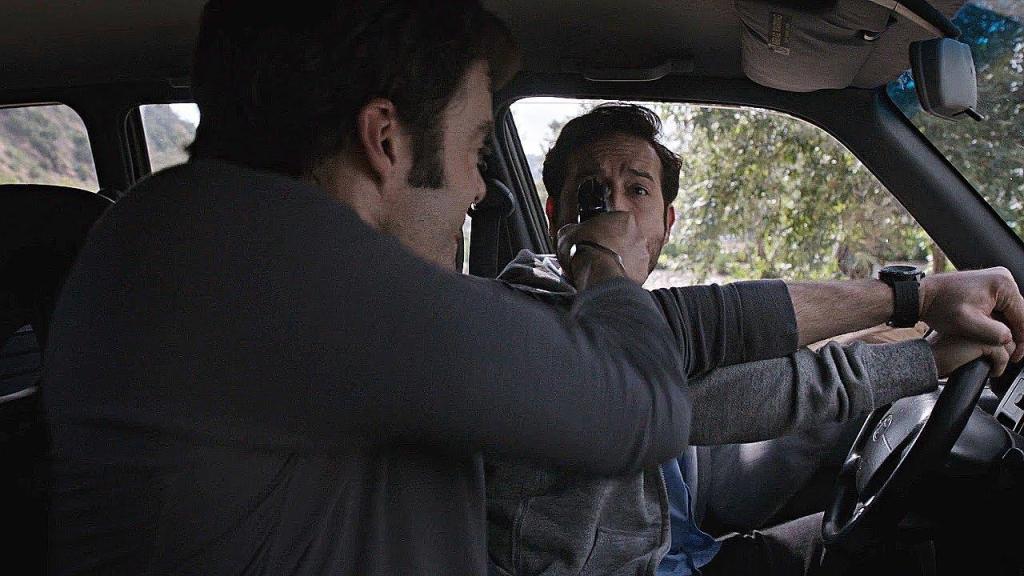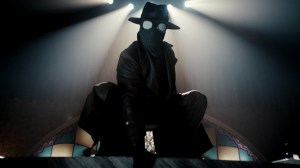HBO”s Barry aired its final episode (in the shadow of Succession’s epic finale) and it was as twisted an ending as the series had been promising all along.
Videos by ComicBook.com
(SPOILERS)
Indeed, some viewers are reeling from the level of dark drama that played out in Barry’s final episode – first and foremost the brutal death of the titular character, Barry Berkman, played by the show’s star and co-creator, Bill Hader. Barry finally had the moral breakthrough he’d been running from for four seasons of murdering people (as a hitman and/or for personal reasons) and was prepared to turn himself in to the authorities. Unfortunately for Barry, that same moment was the one in which his acting coach/surrogate father Gene Cousineau (Henry Winkler) had the breakdown he’d been running from since learning who and what Barry was. Cousineau shot Barry dead, landing himself a life sentence in prison, while the world (and Hollywood) believe that Barry was a tragic hero, seduced and corrupted (and ultimately murdered) by the nefarious crime boss, Gene Cousineau.
A lot of Barry fans went into the final season debating whether or not Barry needed or deserved to die for the many violent and/or evil things he did throughout the show. In an interview dissecting the show, Bill Hader talks about the moment when he, personally, felt that Barry had crossed the line from a character who had some kind of moral underpinning, to a killer whose punishment was inevitably going to come due.
“I always felt a big turning point was when Barry killed Chris [his war buddy, an amiable family man who knew too much],” Hader told the Los Angeles Times. “That was kind of the moment.”
Season 1 of Barry (Episodes 6 and 7) saw Berkman reunite with some old military buddies, only to have two of the more thick-headed and gung-ho members of the group (Taylor and Vaughn) hijack a cartel robbery plan Barry and his mentor Fuches (Stephen Root) put together. Taylor and Vaughn pulled family man Chris (Chris Marquette) into the heist; when Taylor and Vaughn are killed in the botched robbery, Chris can’t stand the survivor’s guilt and wants to go to the police. Barry shoots his friend dead to protect his own life and freedom, framing it as a suicide. Up until that point viewers had seen Barry kill bad men – but it was the first glimpse of his willingness to also harm someone close to him, if it fit his twisted logic to do so.

“We did a screening… I was like, ‘Wait, have we done something wrong?’” Hader continued, reflecting on the confusion of seeing people still cheer for Barry after Chris’s death. “I’d say the other big demarcation for Barry would be in Season 3, when he flips out on Sally at work.”
That Season 3 Episode 2 moment Hader references above made it readily apparent to everyone that Barry had crossed the line. In the scene, Barry comes to the TV production of his girlfriend Sally (Sarah Goldberg), demanding a role for Gene, in order to help bribe the egotistical actor to stop trying to bring him down. When Sally won’t give in immediately, Barry flips out at her in front of everyone, physically intimidating Sally to the point of borderline assault. For the characters and audience, it was the first foreshadowing of why, exactly, Barry was going to have to die – and Hader knew it:
“That was very important [Barry’s assualt of Sally], that it’s only a matter of time before this starts to spread out to the people he loves,” Hader explained. “It was a nice reminder that he’s not a good guy. And that’s echoed in all the characters. They have those moments [of], ‘Can I come back from this?’”
Some viewers were perplexed by the time jump that saw Barry and Sally as fugitives raising a son. However, the themes of the show and Barry’s ultimate fate are reflected in his son John’s presence in the story. Gene kills Barry to stop the web of darkness, death, and tragedy that was spun from Barry’s actions and choices – as Sally, John, and anyone else Barry touched would continue to end up in hell.
Barry is now streaming on MAX.








